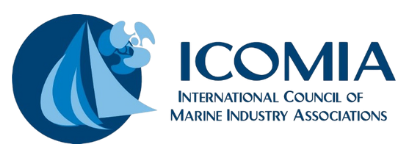Styrene Exposure Levels – No national regulations in force. New national OH&S legislation being developed to replace state-based legislation but not expected to cover styrene. (Reported July 2013)
RRG Country: Australia
Australia Belgium Canada Cyprus Czech Republic Denmark Estonia Finland France Germany Greece Hong Kong Hungary Ireland Italy Japan Netherlands New Zealand Norway Poland Portugal Singapore South Africa Spain Sweden Switzerland Türkiye United Kingdom USA website@icomia.org
-
Australia – Health & Safety/Exposure Levels
-
Australia – Safety Equipment
State legislation applied to local waters. Standards Australia define acceptable equipment standards. National register of approved equipment maintained by federal agency. Compulsory wearing of lifejackets on some vessels, or during darkness or bar crossings in most states. Strong ongoing awareness campaign promote wearing of PFD.
-
Australia – Product Liability
National Australian Consumer Law in effect 1 January 2012. First fully national consumer legislation and tightens, in most states, regulations concerning product liability and warranty.
-
Australia – Registration
Registration in force in all states for motor powered craft except Northern Territory which does not have registration for any vessel.
-
Australia – Drivers Licences
Driving licences required in most states, categorised by type, length and power of vessel. Educational programmes in place in some states in lieu of licensing.
-
Australia – Environment
Local, State and Commonwealth legislation and by laws govern sewage depending on the location. Some states have introduced (2011) complusory annual inspection of private vessels for black and grey water discharge/management. Emission control compliance for engines not covered by legislation but most product complies with EU and USA regulations as most engines are imported. Policy development to introduce local legislation stalled but calls from sectors of industry to resume to harmonise with international requirements.
-
Australia – Marinas and Harbours
The 1995 Commonwealth Coastal Policy provides a framework under which each state implements its own regulations regarding marinas and harbours. Most states have a Code of Practice regarding antifouling and legislation regarding sewage disposal. BIA member associations and and MIA promote the Clean Marinas Program.
-
Australia – Construction Standards and Certification
Compliance with Australian Builders Plate standard covering flotation, loading and max power in place since July 2006. ABP references and provides options to use ISO, ABYC or Australian Standards. Some states have requirements for electrical systems for boats that reflect IEC rather than ISO or ABYC standards. Commercial vessels (inc recreational boats destined for charter/hire & drive market) covered by National Law for Domestic Commercial Vessels from 1 July 2013. RCD CE-marked boats now accepted for charter yacht use based on RCD compliance documentation and non-invasive verification in Australia.
